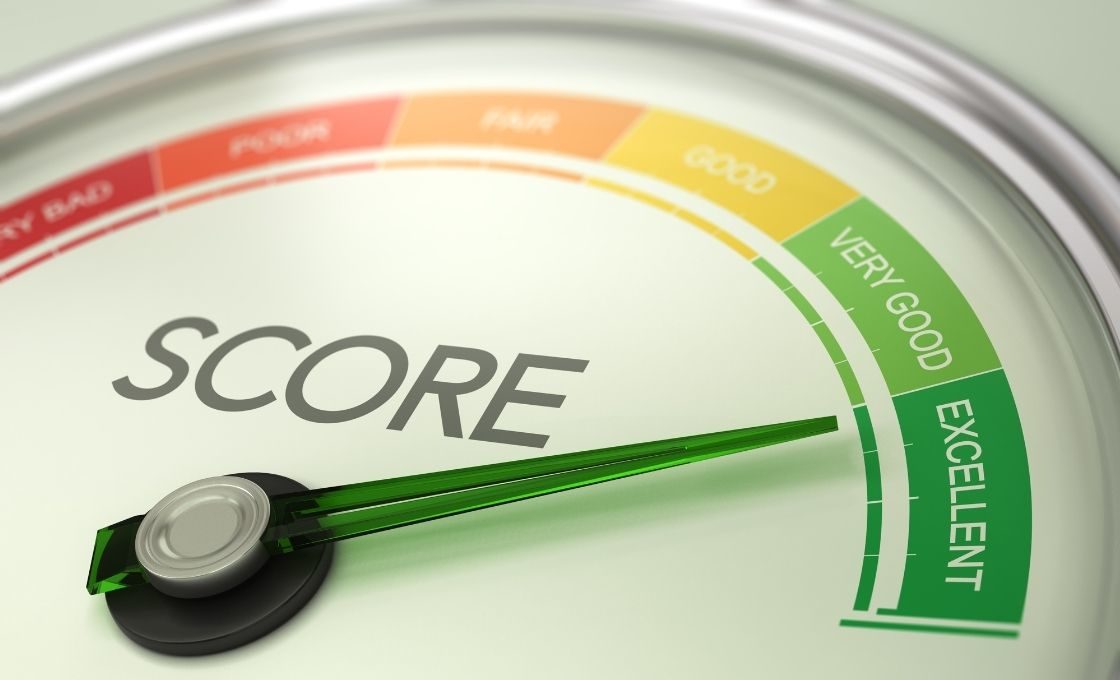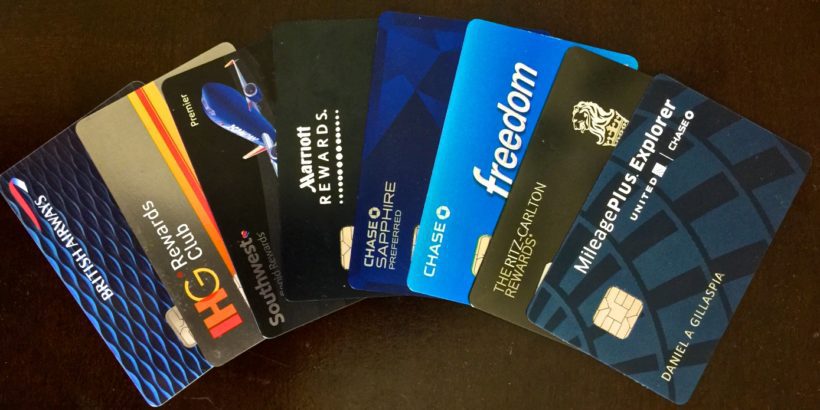For a lot of beginners, there’s some confusion regarding whether or not you should pay off your credit card balance each month.
A lot of people actually think it harms your score to pay off your balance in full each month and others swear you should pay off your balance each month to avoid interest.
So which is it?
In a way, both sides are correct, it’s just that there needs to be some clarification about when you’re paying off your balance. I’ll explain why you should pay off your balance each month and how you can benefit your credit score in the process.
Before I jump into whether or not you should pay your bill, it helps to understand how this question fits into the broader scheme of improving your credit score. So here’s a quick refresher.
Tip: Use WalletFlo for all your credit card needs. It’s free and will help you optimize your rewards and savings!
Table of Contents
Your credit score
When we’re talking about the pros and cons of paying off your credit card balance, we’re talking about the “utilization factor” of your credit score.
Your FICO credit score is determined in the following way:
- Payment History (35%)
- Utilization (30%)
- Credit History (15%)
- New Credit (10%)
- Mixed Credit (10%)
Your utilization is also called your “debt to credit ratio.”
So for example, if you have a $10,000 total credit line and you are using $3,000 of that credit line then you have a 30% utilization.
Utilization makes up 30% of your total credit score, making it the second most important factor for your FICO score. So it’s vital that you understand how paying off your bills will affect it.

The ideal utilization
Ideally, you want to keep your utilization under 30%, although I actually recommend striving for ~5%.
Generally, the lower your utilization the better, until you get to 0%. And this is where the confusion usually comes in.
You want to keep your utilization somewhere above 0% to maximize the benefit to your credit score. Why does it hurt your score to keep it at 0%? After all, doesn’t that mean you’re taking care of all your debt as opposed to just some of it?
The answer is that your credit score is meant to reflect how big or how little of a credit risk you are (i.e., how likely you are to pay back what you are borrowing). If your utilization is at 0% then from the perspective of a lender, you look like someone who does not use your credit.
This means that you may not be experienced with borrowing and repaying credit and may only be experienced with not borrowing available credit. While the latter still makes you responsible, the former makes you appear even more responsible and experienced (and not to mention profitable).
That’s why having more than 0% utilization but less than 10% (or 30%) is ideal. It shows that you can borrow money and still keep yourself in check and pay it back (i.e., be responsible).
Related: How to Improve Your Credit Score Fast
Tip: If you have maxed out credit cards, get added as an authorized user to someone that has a high credit limit and you can instantly improve your credit utilization.
How does it affect your credit score?
In the end, only employees and officers privy to FICO’s algorithms know exactly how a 0% utilization affects your credit score.
According to MyFICO, Barry Paperno, consumer operations manager for FICO, stated that a tiny reported balance can trump a zero balance.
“In short, the lower a consumer’s credit utilization, the better, but having a small balance is slightly better than having no balance at all.”
Thus, it’s clear that having a small balance will benefit your score but if I had to guess, it’s not by a whole lot. But if you are shooting for a perfect credit score, it could probably help you get there.
One thing to remember is that lenders often have their own systems that work in conjunction with FICO scores.
It’s very possible that their systems factor in credit card usage on others cards because that would indicate to them that you are a more profitable customer (remember, these banks make a lot of money on interchange fees).
When applying for a credit card, I’ve even had bank reps on the phone bring up the fact that I have a card that wasn’t getting put to use.
Thus, even if the benefit to your FICO score is minimal, I’d still try to show usage on my credit cards so that other lenders will view you more favorably.
So should I pay my credit card off each month?
Now that you see why having a balance each month is beneficial, you may think you shouldn’t pay off your balance each month. But that’s not how it works.
After your statement closes each month, your balance is then reported to the credit bureaus. Once it’s reported, that’s the figure that determines your utilization.
Of course, after your statement closes and that balance is reported, you then receive your bill.
So you can pay off your bill 100% to avoid all interest payments and still have that utilization reported to the credit bureaus and benefit your score.
This is the ideal way it should work: make your charges, wait for your bill to come in, and then pay it all off.
Related: How Does Payment History Affect Your Credit Score?
What if I pay off my balance after each charge?
Some people like to pay off their credit card balance after each charge or alternatively they might run up a a maximum balance and then pay off that balance multiple times a month (usually called “cycling” your credit card line).
Both of these are usually not beneficial, except under certain exceptions.
For one, if you pay off your balance after each charge or before your statement closes then you will be given a 0% utilization when your statement closes.
Thus, you will not be maximizing your FICO score. Also, I believe some banks may even limit you on the amount of payments you can make each month.
Second, some banks become weary of you cycling your credit limit. This is especially true if your stated income is not very high and you’re cycling a high credit line multiple times a month.
Perhaps you have an authorized user who is also racking up charges so your total amount of spend comes close (or may even exceed) your stated income.
In this scenario, this can raise red flags and your account can come under investigation and in some cases even be shut down.
Tip: Use WalletFlo for all your credit card needs. It’s free and will help you optimize your rewards and savings!
When it makes sense pay off your balance before closing
Those two instances aside, sometimes it would make sense to pay off your balance (or at least most of it) before the statement closes.
This would be a situation where you have a low overall credit limit. Let’s say you are still in the process of building your credit and only have access to $1,500 worth of credit.
You may easily exceed that on spend each month such that if you didn’t pay down your credit card, your utilization would be reported to the credit bureaus as nearly maxed out, which is not good!
In that case, I would recommend trying to pay down the balance once or twice a month but try to keep something on your balance when it’s time for your statement closes. Even keeping $150 would give you an ideal 10% utilization.
In many instances, once banks see you doing this a few times they will often increase your credit limit for you (Chase is really good about this).
This is different from the other situations where you’re cycling a high credit limit because the banks can see that you’re operating with a low credit limit and know that you don’t really have much breathing room.
Finally, if you’re operating with an extremely low line of credit, such as a $300 line of credit, I wouldn’t stress about trying to keep a small balance before the statement closes.
If it’s not an issue for you to keep around $30 on your balance each month before closing then sure, do that. But if that’s causing you stress, I would probably just pay the whole thing off before my statement closes, so that my utilization is 0%.
I’d do that for several months to build up my credit report and then once I was ready to apply for another card, then I would go out of my way to keep around 10% on the card with that month’s closing statement.
FAQs
Utilization makes up 30% of your FICO credit score, making it the second most important factor. It can drastically impact your credit score if it is too high by bringing it down over 200 points.
Credit card utilization is what percentage of a given credit line you are using.
According to Barry Paperno, consumer operations manager for FICO, you want your credit card utilization to be low but not zero for an optimal score. 5% utilization would be a good target to shoot for.
You should pay your credit card bill off in full in order to avoid any applicable interest. However, you want your balance statement to close with a small balance so that your utilization is not 0%.
You can pay your credit card bill multiple times a month but some banks limit the number of payments you can process.
Final word
So in conclusion:
- You want to keep your utilization somewhere between 1% to 5% when your statement closes to maximize the benefit to your credit score.
- By paying your balance in full after your statement closes you will avoid interest and allow the lender to report your utilization to the credit bureaus.
- Unless you have a low credit limit or some other circumstance, there’s no reason to pay off your bill before your credit card closes
Daniel Gillaspia is the Founder of UponArriving.com and the credit card app, WalletFlo. He is a former attorney turned travel expert covering destinations along with TSA, airline, and hotel policies. Since 2014, his content has been featured in publications such as National Geographic, Smithsonian Magazine, and CNBC. Read my bio.


This was extremely informative! There’s so much conflicting information about this topic, but I’ve never found an article like this that covers every angle and every possible credit situation. Thank you! Very helpful.
Thanks! Glad it proved to be helpful!